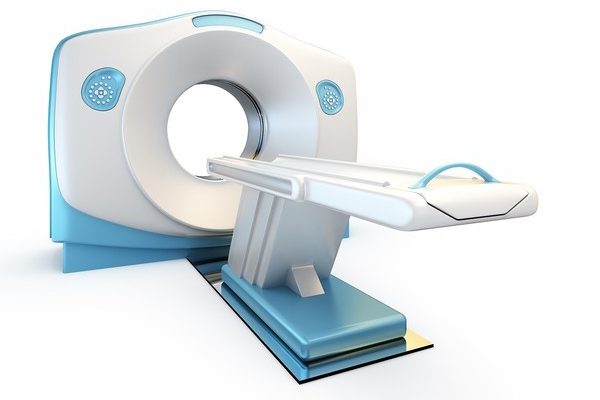Ellen and I stared at the scan. For a moment, there were no words. It was obvious. Where ever we looked, in lungs, bones, lymph nodes and even in the sack around her heart, it was the same. We saw … nothing. No cancer. No mass. No fluid. No disease. We both knew this was impossible.
Six months earlier, at the age of 42, Ellen’s melanoma had returned. It had metastasized to her lungs, bones and lymph nodes. The choices for treatment were few. Because one of the metastases threatened her spinal cord, we decided to radiate that one small area. 14 X-ray treatments over three weeks were given to three vertebrae in her thoracic spine. The pain gradually vanished and her spinal cord was saved. Now, without doing any further treatment, there was a miracle. All the remaining untreated cancer was gone.
This phenomenon is known as the abscopal effect. It is seen, rarely, in melanoma, kidney cancer and lymphoma. I am not certain I have seen it again. The abscopal effect occurs when radiation is used to treat one cancerous tumor and untreated metastases of the same cancer at other sites, get better. It is poorly understood.
An article in the New England Journal of Medicine last week starts to explain what happened to Ellen. Developments in our understanding of the immune system, combined with a new drug, give the clue. It is exciting to see “a miracle” described in those hallowed pages.
A 33-year-old woman developed melanoma that spread to her lungs, liver, and spleen. She received treatment with the new medicine Ipilimumab (sold as Yervoy). This drug is an antibody that increases immune function by activating T lymphocytes. Scientists believe that T lymphocytes can kill cancer cells. However, while her disease may have slowed down, it continued to grow.
Just like Ellen, (and many other cancer patients) a mass started to grow next to this 33 year old woman’s spine. Therefore, three high doses of radiation over seven days were given. In 4 months the tumor next to her spine shrank. Incredibly, so did tumors in her lung and other parts of her body. 10 months later, her cancer was markedly reduced and not growing. The abscopal effect.
Because blood was available on this 33 year old from throughout her illness, it was possible for scientists to look for changes in her immune system. Tests found that natural antibodies made by this patient’s own immune system against melanoma (NY-ESO-1) were slightly increased before any treatment. These antibodies increased further with the drug Ipilimumab. Then, incredibly, after radiation the amount of antibodies against melanoma exploded thirty (30) times. No wonder the cancer died. Her immune system had gone to war. The researchers believe that when the radiation destroyed the single spine tumor, that the microscopic fragments of cells carried away in the blood, acted like a vaccine. The drug boosted the immune response.
This partially explains the abscopal effect and raises the concept of a new way to treat melanoma. If you can successfully increase the immune system’s function at the same time as you tell the immune system what to attack, cancer can be killed. This is not a new idea, but it is certainly a new way to achieve this remarkable goal.
15 years later, my patient Ellen, remains cancer free. In this research, we have a clue about what happened and perhaps how to eliminate cancer. Reports like this, which present new understanding towards a cure, give me great hope. Cancer’s time as a terror will end. That will be a wonderful miracle.







6 Comments